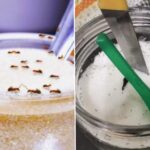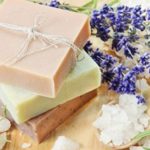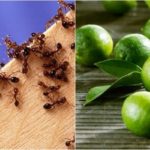Neem Tree Water
The oil present in neem trees is an excellent repellent against harmful insects. The bitter substances found in the fruit and leaves will help control pests.
You can mix 15ml of neem oil (or grind dried neem fruit and leaves) with a teaspoon of dish soap and about 2 liters of warm water. Stir well to combine, then pour the mixture into a spray bottle and spray it on your plants to prevent insect infestations.
Garlic and Dish Soap
Use 2-3 cloves of garlic, peel and crush them, then mix with 2 cups of water. Soak the garlic in water for a day, then filter the liquid. Mix the garlic water with 4 liters of water and 3 teaspoons of dish soap. Pour the solution into a spray bottle and spray your plants.
This mixture is effective against leaf-eating insects. Just use it twice, and you’ll see a significant reduction in the pest population.
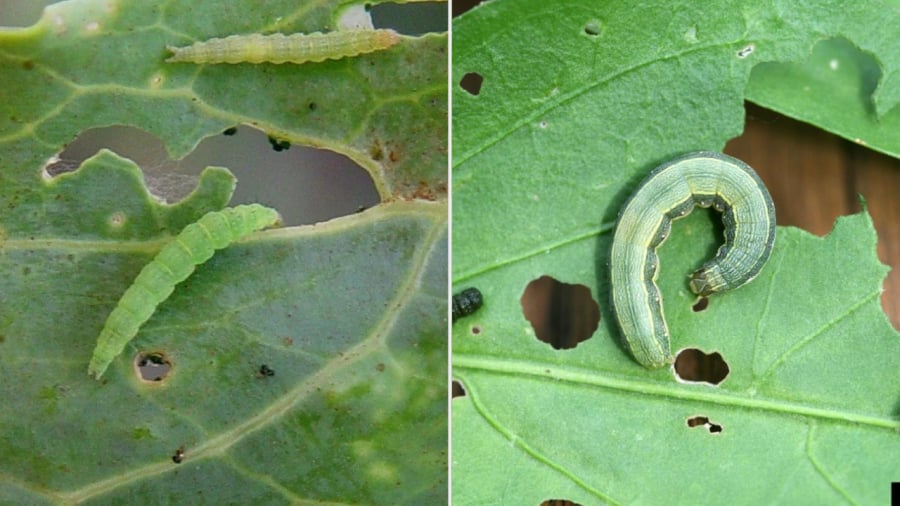
Natural ingredients that can be used for pest control.
Ginger, Garlic, and Chili
Prepare ginger, garlic, chili, and alcohol in a 1:1:1:3 ratio.
Finely chop the ginger, garlic, and chili, then soak them in alcohol in a sealed container. Store the mixture in a cool, ventilated area, ensuring the lid remains closed to prevent alcohol evaporation. Allow the mixture to infuse for about 15 days for the active compounds to dissolve into the alcohol.
For each use, mix 100ml of the infused alcohol with 6 liters of water and spray it on your vegetable garden. Depending on the number of plants and the size of your garden, you can adjust the amount of infused alcohol and water accordingly.
Keep the remaining infused alcohol sealed in the container to prevent evaporation.
This natural pesticide is highly effective against whiteflies, red spider mites, mosquitoes, and other stubborn pests. The solution will irritate the insects’ eyes and burn their bodies. Smaller pests will die slowly, while larger ones will seek shelter elsewhere.
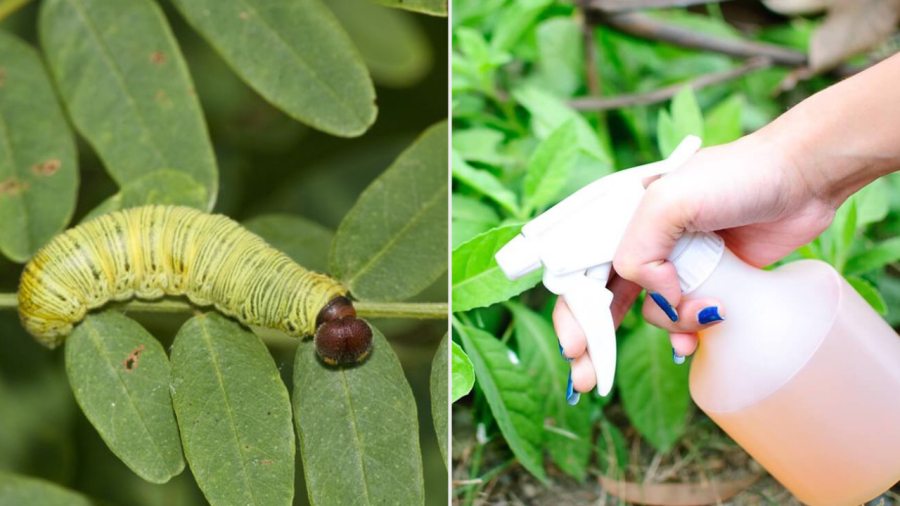
Natural ingredients that are effective against pests.
Tobacco
Tobacco solution is effective against various pests, including aphids, moth caterpillars, and butterflies.
To make a tobacco-based pesticide, soak dried tobacco leaves or the entire dried plant in water for a day. The water will turn light brown. If it appears too dark or thick, dilute it with clean water.
This mixture can be used to control pests on most plants, except for those in the nightshade family, such as chili peppers, eggplants, and tomatoes.
Chili Powder
Chili powder’s spicy heat is an effective natural insecticide.
To use, mix chili powder with detergent, a small amount of cooking oil, and water. Stir the mixture well and spray it directly onto the affected plants to combat the infestation.
Smoke
Smoke is an effective way to repel insects.
Burn leaves, such as eucalyptus, to produce smoke. There’s no need for a large fire; just let the smoke spread throughout your garden to keep pests at bay.
Light
LED lights attract insects. Turning on these lights at night will draw them to a specific location, making it easier for you to eliminate them.
The Summer’s Smart Hack: Why Placing a Bowl of Detergent in the Corner is a Genius Move
Introducing the Power of the Laundry Detergent Pod’s Placement: Unveiling Ancient Secrets for Modern-Day Convenience.
Does positioning a laundry detergent pod in a specific area of your home hold mysterious powers? Delve into this article to uncover the ancient wisdom and modern-day hacks that will revolutionize your understanding of laundry and perhaps, even your life. Prepare to be intrigued as we explore the unexpected connections between detergent, geometry, and a touch of magic!
17 Surefire Ways to Get Rid of Ants in Your Home Using Kitchen Ingredients
The rainy season brings with it a host of unwanted guests – ants! These tiny creatures invade your home, marching across your beds, pillows, and belongings, disrupting your peace and sanity. But fear not, with these 7 simple yet effective ant-busting strategies, you can reclaim your home and bid farewell to these pesky intruders swiftly and decisively.
“Citrus Solution: Banish Ants with a Few Lemons and Limes”
Say goodbye to pesky ants with the power of lemons! Ants may be tiny, but they can cause big problems. However, there’s an easy, natural solution right in your kitchen. Simply use lemon juice to spray on their trail, place lemon peels on their nests, or mix lemon juice with water to mop your floors. Give it a try and be amazed by the results!


























